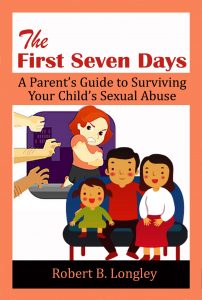Sexual Assault Explosion
Seems like everywhere you look in the media today, another college sexual assault scandal is erupting on a college campus somewhere. I think Jerry Sandusky and Penn State got the ball rolling for most people. The reality is that people are starting to talk about sexual abuse – a subject that most people wouldn’t even discuss in private. It’s sort of a domino effect in social awareness more than an epidemic of sexual abuse. The problem has always been there. It’s just that we are talking about, and victims are feeling empowered to come forward and be heard.
Tip of the Iceberg
For a long time the estimate was that only 15% of sexual assaults get reported. I’d like to believe that the percentages of disclosure are going up, and not the incidents of abuse. One in three girls and one in five boys will experience some form of sexual abuse by the time they are 18. College sexual abuse is somewhat less well documented due to a variety of factors, Peer pressure, alcohol, and the expectation of being an adult all contribute to a murky sexual environment. He said, she said and songs from the Dead Kennedy’s set the tone for a complex problem. And lets not forget the ever forbidden, student teacher relationship. What’s appropriate varies from college to college. The numbers are just going to keep going up as more victims come forward, and more feel safe to do the same.
The Challenge of Campus Police
In some respects campus police are part of the problem and the solution. It’s been a long time since I was in college, but back in the day campus police were more concerned with getting you safely back to the dorm to sleep off whatever you had been doing. Question about laws that might have been broken weren’t generally asked unless someone was seriously injured or worse. Kids will be kids, so just try to make it as safe as possible for them.
Those days started coming to an end in early 1986 when a freshman at my school was raped and murdered. It made the national news, was followed by a series of lawsuits and through the dedicated work of her parents, a new law came into being. The Clery Act required schools to start tracking crimes on college campuses. It was a giant step forward, but a rape on campus was still little more than a checkbox on a form.
Fast forward to today and you are seeing schools across the country being hit with Title IX lawsuits over how they handled victim reports of sexual assaults. It’s time for campus police to make the leap to case worker. In the past some campus police were one step above mall security, now they need to be better trained in victim services than some local police departments. Victims are going to continue to come forward in record numbers, and campus police need to be ready for the volume.
Protect the Institution
What’s a college president to do? A couple of police reports, a lawsuit or two, and then a story on the front page of CNN. There is public pressure to fix the problem, but even if the problem is getting better, more sexual abuse victims are coming forward to share their experiences. The harder you try, the worse it seems to get. Eventually the scales will tip, but that’s still about 5 years away. Meanwhile endowments start shrinking, and the college board starts talking replacement.
Surely the problem occurred on your watch, so if you can’t fix it, they will bring in someone that will. And good luck getting a similar job at another school after getting the ax for this kind of public failure. Unless you are actively trying to cover things up, and that has happened, it’s really just a matter of being in the wrong place at the wrong time.
Advice to College Presidents in addressing sexual abuse
- Learn the facts about sexual abuse and educate your board.
- Take the position that as bad as the problem is portrayed in the media, it’s actually several times worse.
- Start building programs for a larger victim population than you currently know about.
- Educate the media and take the position that your school expects numbers of abuse reports to go up because you are creating a climate where victims can feel heard and respected and that appropriate action will take place for all incidents reported.
- Require all students and staff to take a class/seminar on sexual abuse and misconduct
- Establish a certification program for domestic violence or sexual assault advocacy
- Restrict or create strict policies around student/teacher relationships
- Go beyond your Clery Act Reporting requirements with a case management system geared toward victim services
- Don’t dismiss allegations just because the accused is the pillar of the community, Nobel loreate, or Pulitzer prize winner. These people actually have a higher degree of committing sexual abuse than the general population.
- Don’t try to bury anything. It will come back to bury you.
- If you need help rolling this out, get help. Feel free to contact me.
- Establish procedures for investigations and involvement of local police
Let us know if we can help you dealing with your family’s sexual abuse situation. For ideas to get started please check out our book on what to do during the early days after disclosure.

